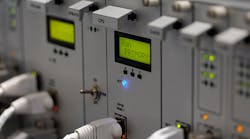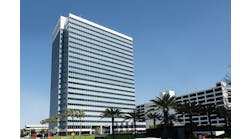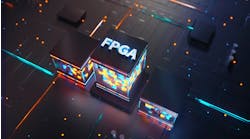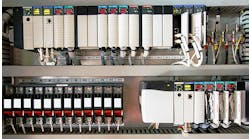The industrial PC is a micro-controller-based computer, an integrated CPU, which is widely used in manufacturing facilities, process control systems and various industries. It works on the principles of technology just like general-purpose computing devices such as desktop or laptop PCs. However, they are designed and developed to provide a higher level of reliability with processing power and memory capacity suitable for various applications and uses.
Industrial computers are very powerful and reliable. They have been designed to work in harsh environments. These PCs are different from other computers as they are meant to be used in industrial areas, so they are built to withstand extreme weather conditions, dust and heat. They can be installed in factories, water-treatment plants, oil refineries and laboratories. We can see these computers in all kinds of locations because they are very easy to maintain. The hardware is easily accessible and easy to replace. These industrial PCs also have a long lifespan. They are highly reliable. Because of this, they can be purchased by companies that will use them for years before they need replacement.
Also read: How PLCs, PACs and PCs all come from the same inspiration
Industrial PCs have many functions, such as controlling the entire system, monitoring important parameters like temperature or pressure, controlling machines and machine tools or displaying important information related to the product being manufactured.
These systems have high processing power and large memory capacity along with high-speed connectivity like USB ports and Ethernet ports. The operating system is user-friendly, as well as customizable for any particular application's needs.
The industrial computer can be used in applications where the standard PC cannot function properly due to the surrounding conditions. It is a common misconception that the industrial PC is just a variant of the standard PC with some special features added for better functioning. However, this is not true. The industrial computer is designed from scratch using only components that are suitable for harsh environments. The manufacturing process also differs quite significantly from any other standard computer manufacturing process.
Industrial PCs provide a variety of features required for industrial operations such as high-performance, long-life and safety. Industrial PCs are available in different sizes and can be placed in high-temperature, dusty areas of the factory floor or even outdoor locations.
These computers also have special applications that make them unique from others. Safety is one significant aspect that is taken into account when manufacturing industrial PCs. The computer must not only be safe, but also operate in any weather condition. It must not get damaged, even if it is dropped accidentally on the floor. This can be achieved by using strong materials while manufacturing these computers. Industrial PCs are the computers that are mostly used in factories, with the main aim of controlling machines and equipment through remote monitoring systems.
These computers can withstand any kind of extreme weather condition and can work 24 hours non-stop without overheating or freezing up. Industrial PCs should have all the necessary software installed to control machinery and equipment at remote areas from a single location.
Industrial PCs are also used as remote terminal units (RTUs) and supervisory control and data acquisition (SCADA) systems. It's a branch of computers used to manage and monitor factory production facilities. RTUs are the hardware that collects data from sensors and transmits it back to a central system via a network. SCADA systems, on the other hand, control machines in an industrial facility. An industrial PC has its own operating system and runs applications that monitor, control or take action based on data received from machinery. The majority of industrial PC users run solutions on Microsoft Windows. When you need to collect data about machinery's status in real time, the first thing you might do is install industrial PCs in the factory or manufacturing plant. These devices can be installed directly in the machinery or attached to them through cables.
Next, you will have to connect these PCs to a network that transmits data from one device to another. The most important part of this process is selecting the right industrial PCs for your needs.
Industrial PCs are the next big thing in industrial automation. They are changing the way industry works. Some believe the role of PLCs is diminishing and being taken over by computers. An industrial PC combines the versatility of a computer, along with the embedded software necessary to run automation applications. The power they provide is not less than these machines, but it is simple to use with features like touchscreen and networking capabilities. This is definitely a better option for the industry; an investment in industrial PCs would be a long-term solution.





